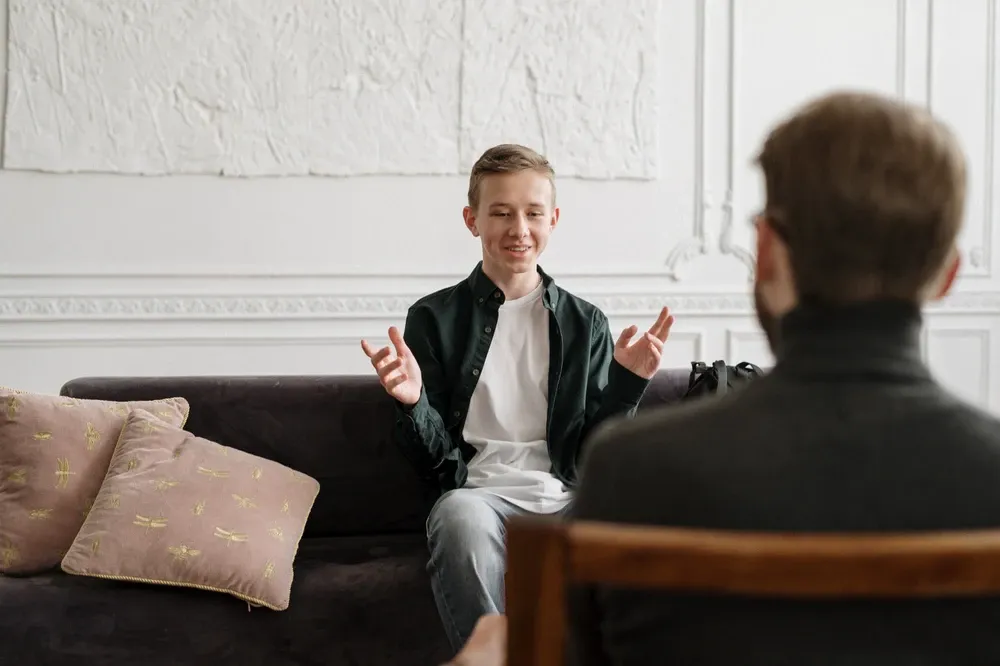
Specialties

We practice from a trauma-informed perspective and utilize techniques from a variety of therapies to best meet the individual’s needs. We do not believe in a one size fits all approach.
We work with adolescents and adults, and can provide help with a wide range of issues.
- Depression
- Anxiety
- Mood Instability
- Relational Challenges
- Unexpected Life Events
- Anger & Stress Management
- Trauma
- Conflict Resolution Skills
- Healthy Boundaries
- Effective Communication Skills
- Mindfulness & Self Awareness
Populations We Serve
Adults
Why do adults get therapy?
Adults seek therapy for a wide range of reasons, including managing stress, anxiety, or depression, coping with major life changes or transitions, and improving relationships. Therapy can also provide support for those experiencing grief, trauma, or other emotional challenges. Additionally, many adults seek therapy for personal growth and self-improvement.
Benefits
Individual therapy can provide numerous benefits for your mental health and well-being. Therapy offers a safe and confidential space to explore your thoughts, feelings, and behaviors with a trained professional. Through therapy, you can gain a deeper understanding of yourself, develop coping mechanisms to manage stress and difficult emotions, and learn healthy ways to navigate life’s challenges.
Adolescents
Why do adolescents get therapy?
Adolescents may seek therapy for various reasons, including academic or social pressures, family conflict, or difficulty coping with emotions. They might also experience symptoms of anxiety, depression, or other mental health concerns that impact their daily functioning and well-being. Additionally, therapy can provide a safe and supportive space for adolescents to explore their identity and navigate the challenges of adolescence.
Benefits
Mental health counseling for adolescents can provide essential support during a critical developmental stage. Therapy can equip teens with coping skills to manage stress, anxiety, and difficult emotions, fostering emotional regulation and resilience. Additionally, counseling can help adolescents navigate complex social dynamics, improve self-esteem, and develop healthy relationships, setting a positive foundation for their future.
Clinical Specialties
Learn more about some of the interventional models we use to help our clients:
-
Internal Family Systems (IFS) is a therapeutic approach that focuses on healing by addressing the different “parts” or sub-personalities within an individual.
IFS recognizes that these parts develop in response to experiences, especially trauma, and can become polarized or stuck in extreme roles (such as addiction, self harm, lashing out, isolating, mood lability, overthinking, poor self care, etc). This allows space for “shame” and “guilt” to step back and look at this part of yourself with out judgement.
By accessing and understanding these parts with curiosity and compassion, IFS aims to promote internal harmony and healing which is known as “self energy”. This is when your authentic self is able to be present without the activation of parts of self trying to protect you from pain.
-
Cognitive Behavioral Therapy is a empirically based form of psychological treatment. According to the American Psychological Association, CBT is based on the following principles:
- Faulty, unhelpful thought patterns lead to psychological problems
- Learned patterns of unhelpful behavior lead to psychological problems
- Positive, more helpful though patterns and behaviors can be learned and practiced
At Mind Empowerment, we work together to help you learn to recognize these unhelpful thoughts and behaviors, and work to replace them with more helpful ones.
Other important tenets of CBT include developing problem-solving skills, learning to investigate negative emotions rather than avoid them, and becoming your own “therapist” by challenging your thoughts and behaviors.
-
Dialectical Behavioral Therapy (DBT) is a therapeutic approach that is tailored to individuals that experience powerful, difficult-to-control emotions.
DBT grew out of treatments designed for borderline personality disorder, self-injury, and individuals at risk for suicide. Despite the extreme context of DBT’s beginnings, many have found success with the approach for emotional regulation and negotiating complex social situations.
Like Cognitive Behavioral Therapy, clients are asked to keep a diary of their emotions and learn to recognize unhelpful responses to those emotions. Across sessions, we will work with you to recognize patterns in your emotions and develop a plan to respond to yourself and others with greater skill and grace.
-
Accelerated Resolution Therapy (ART) is an innovative approach to therapy that seeks to rapidly relieve symptoms of post-traumatic stress disorder (PTSD), anxiety, and depression.
ART combines traditional modes of therapy with eye movements, which have been shown to reduce inhibition while traumatic memories are recalled—accelerating the therapeutic process. Because of the shorter timeline, many clients find ART to be less overwhelming than other modes of therapy.
-
Unlike traditional psychotherapy that searches the past to resolve trauma, Solution-Focused Brief Therapy (SFBT) focuses on problems in the present to improve your future.
We work with you to create an optimistic vision of the future and master the tools needed to get there. Because the focus of SFBT is the present, clients are often relieved to find that their personal relationships and self-image are not put under the microscope—instead, each session is designed to bring you closer to a future you want for yourself.
-
Motivational Interviewing (MI) is a simple, yet powerful approach for those that are on the fence about undergoing the therapeutic process. MI was initially developed as an interventional technique to challenge ambivalence and uncover motivation within individuals suffering from substance and alcohol use disorders, eating disorders, and other self-destructive behaviors the individual may not be ready to address.
Through active listening, we work with you to uncover your personal values and discover your intrinsic motivation. We strive to create an open, supportive environment that facilitates dialog without judgment.
As Stephen Rollnick, one of the creators of MI, put it—
“The more you try to insert information and advice into others, the more they tend to back off and resist…Put simply, Motivational Interviewing involves coming alongside the person and helping them to say why and how they might change for themselves.”
-
Crisis Stabilization is an immediate intervention meant for those in acute emotional distress or those who are suicidal. We offer a safe, supportive environment and will work with you to make a plan for the day.
We partner with other crisis services and will ensure you get the help you need and have a plan in place before you leave. Your safety is our highest concern.
If you need immediate help, please see our Crisis Resources page or call 911.




You are brave in taking the first step and seeking help. Let’s help your “stuck” feel less “sticky”.
Please, contact us below to schedule a FREE 15 minute consultation

